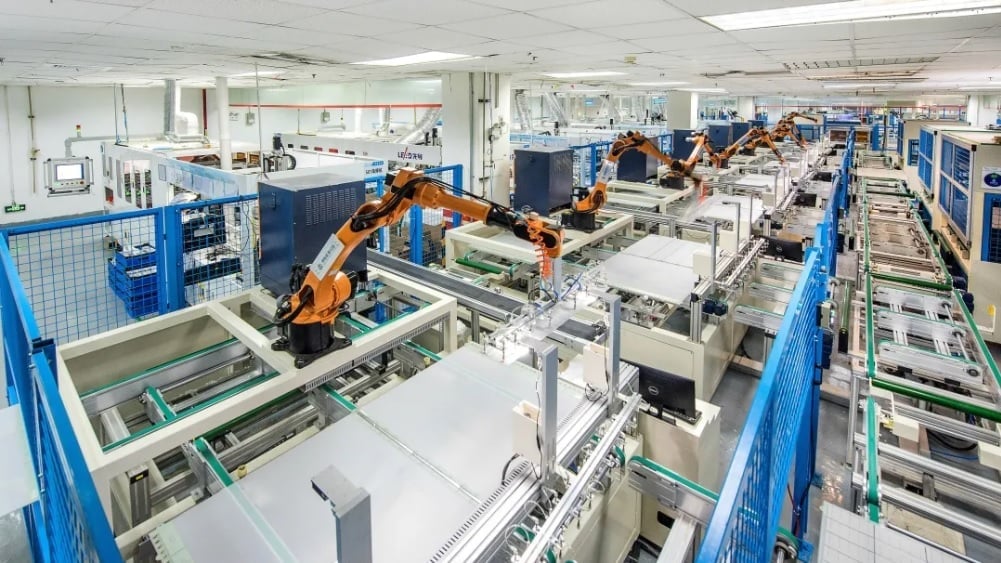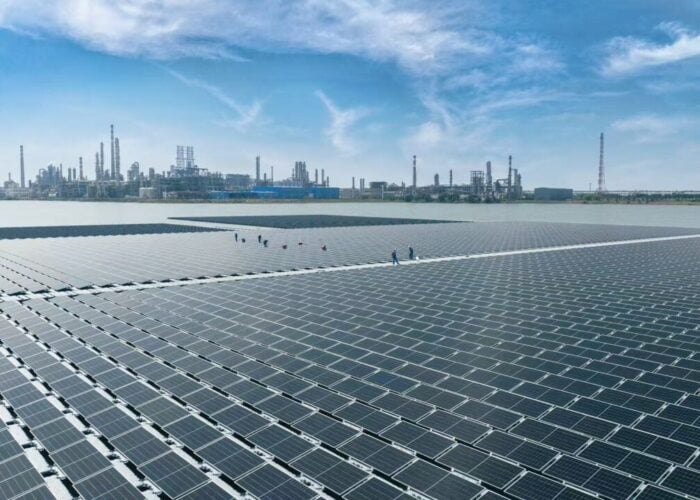
Chinese module manufacturer Trina Solar has filed a lawsuit against Canadian Solar and one of its subsidiaries, seeking RMB1.058 billion (US$144.7 million) in damages for the alleged infringement of two of its patents.
The lawsuit was filed yesterday (11 February) against Canadian Solar and its subsidiary, Changshu Canadian Solar Energy Technology, in the Jiangsu High People’s Court. It pertains to patent numbers ZL201710975923.2 and ZL201510892086.8, named “solar cell module” and “solar cell and its manufacturing method” respectively, which Trina Solar acquired from the Shangrao Xinyuan Yuedong Technology Development Company, a Japanese subsidiary of fellow manufacturing giant Jinko Solar in February 2024.
Unlock unlimited access for 12 whole months of distinctive global analysis
Photovoltaics International is now included.
- Regular insight and analysis of the industry’s biggest developments
- In-depth interviews with the industry’s leading figures
- Unlimited digital access to the PV Tech Power journal catalogue
- Unlimited digital access to the Photovoltaics International journal catalogue
- Access to more than 1,000 technical papers
- Discounts on Solar Media’s portfolio of events, in-person and virtual
Trina Solar said the two defendants had “jointly manufactured, licensed and sold PV modules and other products falling within the scope of protection of the first patent and the second patent”. It has asked the court to prohibit them from manufacturing cells and modules in this manner and “destroy the entire inventory” of the products that allegedly fall foul of the Trina patents.
The company also called on the court to order a halt to the production of tunnel oxide passivated contact (TOPCon) cells that are covered by the second patent and destroy the inventory of the cells and modules into which they have been installed.
Trina Solar said it was also seeking a further RMB2 million (US$274,000) for each alleged infringement to cover legal fees and other “reasonable expenses” it expects to incur as part of the lawsuit.
A history of legal battles
Canadian Solar pointed out that this is not the first time Trina Solar has alleged infringement of these patents. In May 2024, Trina Solar asked the Shanghai Yangshan Customs department to seize Changshu Canadian Solar Energy Technology’s products over the alleged infringement of the first patent pertaining to cells and modules, but the products were eventually cleared and released by local authorities.
A formal request for the invalidation of this patent has been filed with the State Patent Office of China and is currently pending.
Trina Solar has also filed a lawsuit against a US subsidiary of Canadian Solar in the Delaware Federal Court for the alleged violation of the manufacturing patent. The lawsuit has been suspended as the US International Trade Commission (ITC) investigates the matter. The ITC plans to make a preliminary ruling in January 2026 and a final ruling in May 2026, which would set the groundwork for the Delaware court’s decision.
Canadian Solar said in defence of its position that Trina Solar’s patents were invalid and that its own products and processes do not violate them anyway.
“The company [Canadian Solar] has done sufficient research and analysis on Trina Solar’s two patents in question and believes that there is strong evidence to prove that the two patents should be invalid and that the Company’s products and processes do not infringe the two patents,” wrote Canadian Solar in a statement, alleging that Trina Solar’s claim “lacks facts and evidence”.
Both companies note, however, that the trial has not yet begun, and so have not offered further comments on its likely outcomes.
PV Tech has approached Canadian Solar for more information on the lawsuit.
Patent war
The news is the latest in a series of ongoing patent lawsuits in the solar industry that has affected all parts of the global market. Last October, French firm Carbon emerged as a third actor in an ongoing patent dispute between Chinese manufacturers JA Solar and Astronergy and in January of this year JinkoSolar’s Shangrao Xinyuan Yuedong subsidiary filed a lawsuit with rival Chinese manufacturer LONGi. Earlier this week, a JinkoSolar subsidiary launched a lawsuit in Australia against rival producer LONGi’s Australian subsidiary for alleged technology patent infringement.
Last year, Tim Harris, IP partner at law firm Osborne Clarke told PV Tech Premium that the increasing technical sophistication of PV cells and modules has helped encourage a new generation of lawsuits that target “niche areas around electronics, software, manufacturing processes, cell structures and array structures”, as PV’s patent battles become more common.
New technologies such as TOPCon and back contact have often been at the centre of the disputes, as rival firms, predominantly from China, seek commercial advantage over their competitors.







